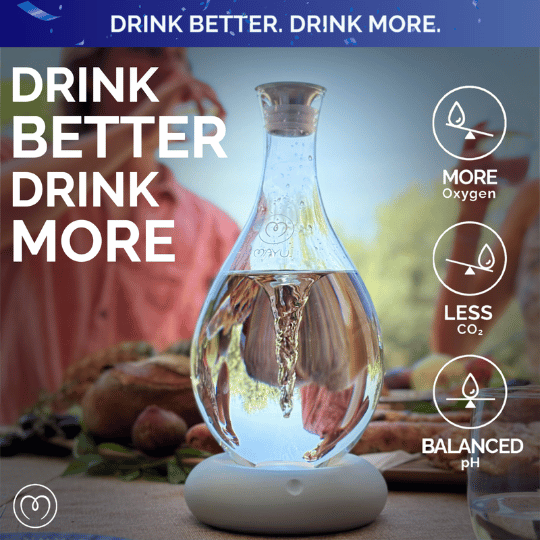Did you know your medications might be affecting your smile? Many prescription drugs, while vital for our overall health, can have surprising consequences for our teeth and gums.This article explores the hidden link between prescription medications and oral health, discussing how common medications can lead to dryness, discoloration, and even infection in the mouth. Learn how to safeguard your oral health while taking necessary medications, and discover the importance of open communication with both your doctor and dentist.
Key Takeaways:
- Prescription medications can have unintended side effects on oral health.
- Dry mouth is a common issue with many prescriptions, leading to an increased risk of cavities.
- Practicing good oral hygiene is crucial for those taking medications.
- Consulting with both your doctor and dentist can help manage side effects on dental health.
The Link Between Prescription Medications and Oral Health
Prescription medications are essential for treating various health conditions, but they can also come with unexpected side effects. One often-overlooked impact is on your oral health. From causing dry mouth to increasing the likelihood of tooth decay, the ramifications can be extensive. For instance, if you have ever wondered what does Suboxone do to your teeth, you might be surprised by the significant effects medications can have on dental health. Medications like Suboxone, primarily used for opioid addiction treatment, can lead to severe dental issues due to their chemical composition and side effects, drastically changing the landscape of your oral health. This article dives deep into how your medication might be affecting your teeth and what you can do to mitigate these issues.
Common Medications That Affect Oral Health
Several common medications are known to have side effects that impact dental health. These include certain antidepressants, antihistamines, and medications used for chronic conditions like hypertension and diabetes. For example, antidepressants like SSRIs can lead to dry mouth, making it challenging to maintain optimal oral hygiene. Antihistamines, commonly used to alleviate symptoms of allergies, can also reduce saliva flow, creating an ideal environment for bacteria to thrive. Chronic conditions like hypertension often require long-term medication use, which, over time, can result in significant oral health issues. The predominant issue with many of these drugs is that they can trigger dry mouth, which elevates the risk of cavities. Reduced saliva flow allows harmful bacteria to build up more quickly, rendering individuals more susceptible to oral health problems.
How Dry Mouth Leads to Tooth Decay
Dry mouth, scientifically known as xerostomia, can be more than just uncomfortable. Saliva plays a critical role in washing away food particles and neutralizing acids produced by bad bacteria. When its production is reduced, these bacteria thrive, leading to the development of cavities over time. People with xerostomia find it challenging to chew, taste, and even speak. Chronic dry mouth often leads to increased plaque accumulation around the teeth, intensifying the risk of gum disease. According to the American Dental Association, dry mouth can significantly contribute to dental decay. A decrease in saliva affects your teeth and soft tissues, making them more prone to infections and sores.
Practical Tips for Managing Oral Health While on Medications
If you take any medications that impact saliva production, it is imperative that you take preventative measures to protect your dental health. Here are some helpful tips:
- Maintain Good Oral Hygiene: Remember to floss after brushing your teeth twice a day with fluoride toothpaste. Fluoride strengthens the enamel, making your teeth more resilient to decay.
- Stay Hydrated: Drinking water can help maintain mouth moisture and rinse away food particles. Frequently drinking water throughout the day can mitigate dry mouth symptoms.
- Use Saliva Substitutes: Over-the-counter saliva substitutes can be beneficial for those suffering from chronic dry mouth. These products mimic natural saliva, providing lubrication and protection for your mouth tissues.
- Regular Dental Check-Ups: Regular visits to your dentist can catch and address issues early. Dentists can offer personalized advice and targeted treatments like fluoride varnishes to help manage dry mouth and prevent decay.
Dietary Changes to Support Dental Health
Additionally, the diet has a role in controlling how prescription drugs affect your dental health. Foods with high water content might encourage the production of saliva. Crunchy fruits and vegetables not only stimulate saliva but also help clean your teeth surfaces. Additionally, limiting sugary snacks and drinks can reduce the risk of tooth decay. Frequent consumption of sugary foods creates a consistent environment for acid-producing bacteria, which can erode your tooth enamel. A study published by the National Institutes of Health highlights the benefits of a well-balanced diet on oral health, particularly for those on medication. Incorporating foods rich in calcium and phosphates can further strengthen your teeth, providing protection against decay.
Consulting Your Healthcare Providers
If you’re worried about the impact of your prescription medications on your dental health, it’s vital to consult both your doctor and your dentist. Open communication between you and your healthcare providers can facilitate a more comprehensive treatment plan. Your doctor can provide insights into the side effects of your medications, while your dentist can offer practical solutions to manage these effects. For instance, your doctor might adjust your medication dosage or suggest alternatives that are less harsh on your oral health. Your dentist can recommend specialized dental products or treatments to counteract the side effects of your medications.
The Importance of Holistic Health Management
Managing your overall health requires a holistic approach. Understanding that prescription medications can impact more than just the diagnosed condition is crucial. By being well-informed and taking proactive measures, you can better manage your oral health while still benefiting from essential medications. Holistic health management involves regular check-ins with all your healthcare providers and making lifestyle adjustments that support your overall well-being. Through a series of good oral hygiene practices, proper hydration, and nutritional balance, you can mitigate the dental side effects associated with prescription medications.
The relationship between prescription medications and dental health is intricate but manageable. You may lessen the negative effects on your teeth and gums by being aware and collaborating closely with your healthcare providers. Remember, good oral hygiene and dietary habits go a long way in maintaining a healthy smile while benefiting from necessary medications. Being proactive to your oral health while undergoing medication treatment can significantly preserve your dental well-being.





